Nigeria
The death toll from a mysterious bomb blast that hit a group of herders in central Nigeria on Wednesday has risen to 40 from 27 previously, the local government said on Thursday.
“We now have around 40 people who have been killed,” said Abdullahi Sule, the governor of Nasarawa state. The explosion occurred in Rukubi, on the border between Nasarawa and Benue states, in an area plagued by communal violence.
A group representing herders said on Wednesday that the explosion came from a strike by the Nigerian army.
“There was a rumour earlier that the air force carried out this bombardment, but we now know that there was no overflight of the air force over this region," Sule told TV channel Arise News.
"It was a drone that flew over the area and dropped the bomb," he said, without saying who was in command.
The spokesperson for the Nigerian Air Force did not respond to requests from AFP on the subject.
"It was an airstrike. It killed 27 people," Lawal Dano, a member of the Nigeria Cattle Breeders' Association, Miyetti Allah, said on Wednesday.
"We all know that only the military has planes to carry out airstrikes, and we call for a thorough investigation and necessary sanctions for those behind this," he added.
In the past, there have been accidental military strikes on civilians in the north of the country where the military is fighting jihadists and criminal gangs.
Disputes between cattle herders and farmers over land, grazing and water rights are common in the central and northwestern regions of Nigeria.
Last week, nine people were killed by gunmen near a camp for displaced people, according to Benue state authorities.
The tensions, whose roots go back more than a century, are caused by droughts, population growth, the expansion of sedentary agriculture and poor governance.
In recent years, these conflicts have sometimes taken on an ethnic and religious dimension, with the Fulani herders being Muslims and the farmers mostly Christians.
Insecurity will be one of the major issues in the presidential election scheduled for late February in Nigeria. As required by the Constitution, the head of state Muhammadu Buhari, a former general who was elected in 2015 and re-elected in 2019, is not running again.



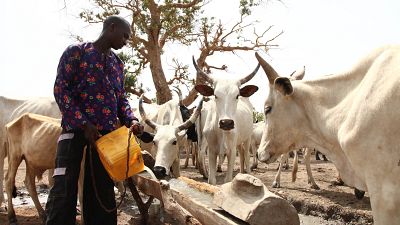

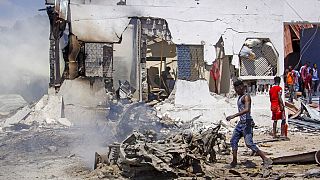
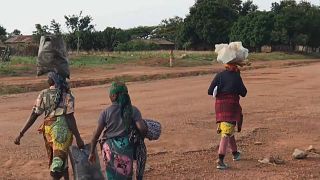
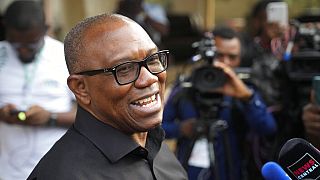
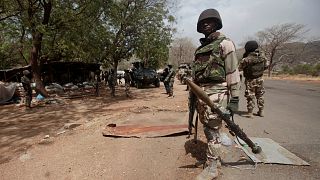
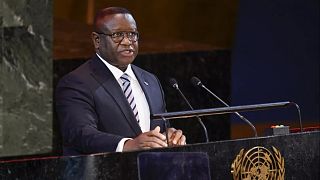



Go to video
Nigerian president orders crackdown on gangs after 150 killed in conflict-hit north
01:08
Separatists' sit-at-home protests caused 700 deaths in Nigeria's southeast, report finds
Go to video
Biggest refugee camps in northeastern Nigeria to close in next weeks, governor said
Go to video
Iran: Death toll in port blast rises as crews scramble to stop blaze
Go to video
Roadside bomb kills 8 bus passengers in northeast Nigeria
Go to video
At least 8 killed after a trailer crashed into vehicles and burst into flame